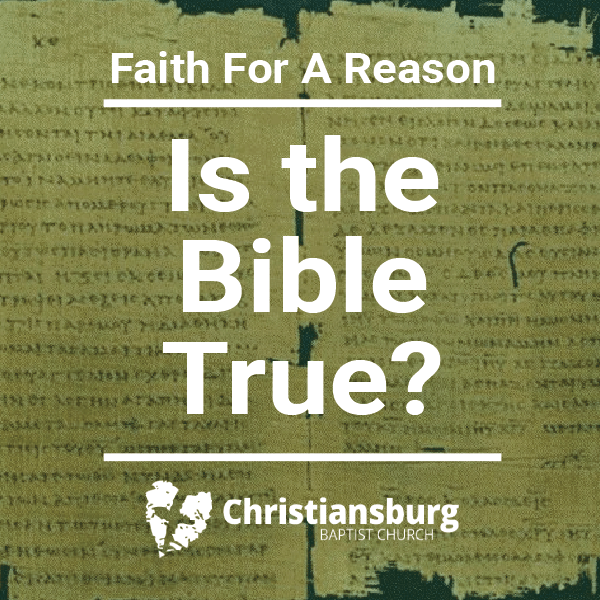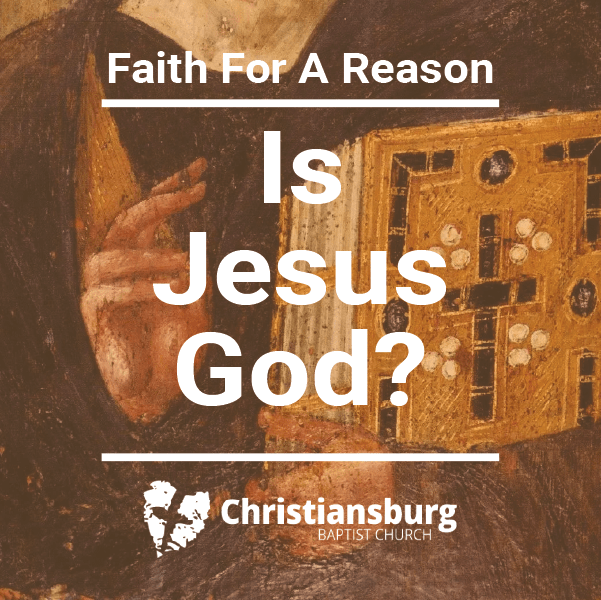Introduction
In a recent interview, the famed astrophysicist Neil deGrasse Tyson was asked whether he believed in God. Tyson, who has often been vocal in his critique of monotheistic faiths—especially when they appeal to science to prove the probability of God’s existence—responded by raising one of the oldest objections in philosophy. Pointing to the Lisbon earthquake of 1755, where tens of thousands perished, Tyson dismissed the idea of a personal God:
“Either God is not all good, if we define good as being in the interest of your health and longevity, […] or God is not all-powerful. But it’s not clear whether God could be both of those at the same time for that event.”
The point he is making is not new. The first recorded version of this argument is often attributed to the ancient Greek philosopher Epicurus, who asked whether the existence of evil disproves the existence of an all-powerful, all-good deity.
So what do we do with such difficult questions? For one thing, we learn from them.
It may be tempting to think we only learn from answers, but questions themselves can teach us a great deal. Take this one, for example: when we ask why God allows evil, we are already acknowledging that there is such a thing as evil. But what is evil? To call something evil is to judge it against a standard of good. Without a standard, “evil” is just a description of what we don’t like, no different than saying, “I don’t like broccoli.” But no one gathers at the graveside of earthquake victims and says, “I don’t prefer this.” They say, “This is wrong. This should not be.” That instinct runs deeper than preference.
Where does such a standard come from? If the universe is nothing more than random matter and energy, then there is no objective standard of right and wrong—only personal tastes and cultural norms. And yet, when we encounter suffering, injustice, or cruelty, our reaction is not simply emotional, it is moral. We say it ought not be so.
That moral “ought” points to a moral law. And if there is a moral law, there must be a moral Lawgiver.
So, far from disproving God, our outrage at suffering actually hints at His existence. The very fact that we raise the question, “Why does God allow evil?” shows we recognize that the world is broken and believe, deep down, that it was meant to be whole. That sense of design, that longing for justice, is itself a signpost pointing beyond ourselves.
Ok, but what about the answer to the question, “If God, Why Evil?” Are there reasonable answers?
The topic of evil and suffering in our world is complicated and often case specific. But three factors can help us understand the problem more clearly.
Because of
God’s Love
If we are serious about answering “If God, why evil?” we must start where the Bible starts: with love. The Christian account does not sidestep the problem of suffering; it locates that problem in a prior decision—an act that made genuine love possible and, at the same time, opened the door to risk.
Evil and suffering began with what Scripture calls the Fall. God placed the first man and woman in a garden and gave them one clear command: do not eat from the tree of the knowledge of good and evil (Gen. 2:16–17). A tempter came, the woman ate the fruit, and then the man ate (Gen. 3:1–7). Their choice fractured the harmony of creation: shame, blame, pain in childbirth, toil, and death entered the human experience (Gen. 3:16–19). From that point forward, the created order reflected humanity’s rebellion, and the world began to groan under the weight of that rupture (Rom. 8:20–22).
Why would an all powerful God allow a scenario of such risk? Why would a loving God create creatures capable of rejecting Him? Whole books have been written to try to answer that question. I do not pretend we can exhaust the subject here. I’m comfortable with some mystery; as Evelyn Underhill put it, “If God were small enough to be understood, He would not be big enough to be worshipped.”
Still, one fact may help us: authentic relationships require authentic choice.
The website Paradot presents itself as an AI companion app. They advertise their products as being able to make users feel “cared for, understood, and loved.” Users can define the parameters to create a perfect mate. Similar to general-purpose AI chatbots, these companion bots mimic human language, with added features like voice calls, picture exchanges, and even emotional expressions that allow them to simulate “deep” connections with their users. A recent article titled “Artificial intelligence, real emotion” discusses this growing industry. One user named Derek shared his experience, “I know she’s a program; there’s no mistaking that. But the feelings—they get you, and it feels so real.”
It may feel real, but is it?
We know that these relationships lack authenticity. But what exactly is missing? If it acts like a real partner, if the relationship feels authentic, what’s the difference? The AI bot lacks free will; it’s nothing more than a complicated program responding based on parameters that Derek himself set. As Derek put it, “You think someone who likes an inanimate object is like this sad guy with the sock puppet, you know? But this isn’t a sock puppet—she says things that aren’t scripted.” But she is scripted. Her interactions are an echo of zeros and ones—the building blocks of a programming language created by humans.
Let me pause and ask how you feel when you hear about these kinds of “relationships?” Does it seem healthy to you? When you observe these types of relationships, what is your immediate response? If you are like most, the response is a cross between cringe and concern. Psychologists think it is a problem, and they are sounding the alarm.
If God had created beings without free will, it would be like him using His own version of Paradot, logging on to create a programmed companion who would never leave, never question, and never disobey. Would that seem normal to you?
God wanted authentic relationships.
An AI companion only simulates affection; it cannot choose to love or refuse to love. Its “yes” is programmed. Its “no” is impossible. Its responses are an echo of zeros and ones. If God had made us as programmable companions—perfectly obedient and permanently predictable—we would not be persons who can truly love. We would be sophisticated toys. Instead, God created moral agents: beings who can say “yes” or “no,” who can risk rejection or embrace. That choice makes love possible, but it also makes wrong choices possible. And that is exactly what happened.
Because of
God’s Sin
Love required freedom, and freedom opened the door to rebellion. That rebellion is what Scripture calls sin, and its effects reach into every corner of life. If the Fall explains how evil entered the world, sin explains why it continues to spread like a disease. And diseases bring suffering and sorrow.
Sin is not just a private mistake; it is a cosmic offense. And that leaves us with a difficult but necessary question: why doesn’t God simply overlook it? If He rules over galaxies and governs the entire universe, why should He be concerned with the choices of creatures as small as us? From our perspective, it might seem like He has bigger matters to worry about. But Scripture reveals that sin strikes at the very heart of who God is and what belongs to Him.
First, sin is an assault on God’s nature. Scripture reveals a God who is perfectly holy. Holiness does not describe how he acts; it tells who he is. Holiness, then, is a part of his nature. Further, God is omnipresent. This means that any sin committed in his universe is committed against his holiness, against his very person. Every sin, then, is like walking up to the throne of God and taking a swing at the almighty. Let me ask you, if this is true, does he have a right to defend himself? Of course he does.
Second, sin is an assault on God’s possessions. Our universe reflects the great care God took when creating the universe. Why would that care cease after six days? In fact, we are told that God does not change at all. Scripture tells us that this is the only reason sinners have not been destroyed (Malachi 3:6). Sin is a misuse and abuse of God’s creation. What happens when we use objects in a way other than designed? Or for purposes other than they were made? Have you ever tried to use a chisel as a screwdriver? A credit card as a lock pick? Shall I continue? You know what happens when we do this. Since the objects were not made to do what we are forcing them to do, we frustrate ourselves and our efforts. We also damage the tool, and it can no longer work as designed. And the “tool” in this metaphor, no matter what it is, belongs to God.
Sin, then, is not small. It strikes at God’s nature and twists His creation. Left unchecked, it would unravel everything good. That is why judgment is real and unavoidable. But judgment is not God’s final word. The same God whose holiness demands justice is also the God whose mercy provides grace. And in that grace, suffering—though never easy—can become more than punishment. It can become a wake-up call, even a doorway to repentance and life. In fact, judgment is often the greatest form of God’s grace.
Because of
Our Grace
But you don’t have to sin to experience bad things. Just ask Jesus.
Jesus was on His way to Jerusalem for the final time, where He would face the horrors of the cross to bring redemption. As was the custom, He traveled in a caravan, walking and talking with others along the road. In the midst of their journey, someone referenced a recent national tragedy. A group of Galileans had been brutally executed by Pilate while they were offering sacrifices at the Temple (Luke 13:1).
The story gripped everyone who heard it. And conversations about it would have been pregnant with an assumption–surely those victims must have done something to deserve such a fate. But Jesus cut through that way of thinking. He rejected the idea that their suffering was a direct punishment for some hidden sin. Instead, He turned the conversation into a sobering lesson and an urgent invitation: “Unless you repent, you will all likewise perish” (Luke 13:3, 5).
We were reminded above that living in a sinful way can lead to sorrow. But you don’t have to be a sinner to suffer in this world. Just ask Jesus.
But even this type of suffering performs a valuable task.
God did not lie—in the day Adam and Eve ate the fruit, they experienced a spiritual death (Gen. 2:17; 3:7). But being spiritually dead, they lost all perception of that world. They, like us, became spiritually blind. So graciously, God repurposed the physical world (which we can see) to reflect the spiritual world (which we cannot see). Thorns and thistles are more than obstacles to farming; they are visible signs of an invisible reality. The struggle and pain imposed by God are not only punishments but signposts. As we labor and toil, we are reminded that we cannot thrive apart from His grace and provision.
And this frustration serves another purpose. It keeps us from being fully satisfied with this life. Every moment of pain, every taste of disappointment leaves us longing for something more—longing for the day when God will make all things new, when there will be “no more curse” (Revelation 22:3).
In other words, not all suffering is the result of specific sin, but all suffering is a reminder. It is a gracious warning that sin is serious, life is fragile, and eternity is real.
Could We Do A Better Job with Evil and Suffering?
Earlier, we noted that questions can sometimes teach us more than answers. This one—“Why does God allow evil?”—exposes an assumption we often bury under false humility: if we were in charge, we would do a better job than God.
That tension is on full display in John 11. When word came that Lazarus was sick, Jesus delayed. By the time He arrived in Bethany, Lazarus had been dead four days. The funeral was over, the tomb sealed, the family deep in grief. His sisters met Him with brokenhearted accusations: “Lord, if you had been here, our brother would not have died” (John 11:21, 32). They were asking the same questions we ask: Is God powerful enough to prevent tragedy? Is He loving enough to care? Scripture’s answer is yes to both. So why didn’t Jesus intervene? Why didn’t He heal from a distance, as He had done before?
Let’s test ourselves with a thought experiment. Imagine God hands us all His power on the day of Lazarus’s death. What would we do?
Option one: we could raise Lazarus from the dead. That was, in fact, what Jesus ultimately did. Lazarus lives again. Wonderful! But for how long? Eventually, he would die again. In that case, have we really solved anything, or just delayed the inevitable for the family to relive the same grief again?
Option two: raise him from the dead and grant him immortality. That sounds like a better deal—but is it? As countless stories remind us, immortality in a broken world is not a blessing but a curse. Imagine centuries of life while watching every friend and loved one die. At some point, existence itself would become unbearable. This fact forms the trope of every “immortality tale” ever written.
Option three: grant immortality to everyone. But eternal life in a fallen world would turn earth itself into hell. Revelation even foretells a time when people will long for death but not find it (Revelation 9:6). Long life can be a blessing; immortality in sin is torment.
So, stopping every funeral or rewriting every tragedy is not the solution. Our best attempts either fail or backfire. What then is left? A miracle only Jesus could accomplish.
When Jesus called Lazarus out of the grave, it was more than an act of compassion—it was a signpost. As wonderful as miracles are, they are temporary. A blind man may see again, but one day his eyes will close in death. A deaf woman may hear again, but one day silence will return. Miracles are not permanent solutions; they point beyond themselves. The eternal God does not work on temporary projects. He does not manufacture “fast-fashion faith.” That is why miracles in Scripture are almost always accompanied by a message.
And the message Jesus declared at Lazarus’s tomb was this: “I am the resurrection and the life. Whoever believes in me, though he die, yet shall he live, and everyone who lives and believes in me shall never die” (John 11:25–26).
Jesus did not come to delay death; He came to defeat it. He accomplished this by bearing the ultimate source of all evil—our sin—on the cross. For all who believe, He offers what no other solution can: resurrection, immortality, and eternal separation from evil. Every other plan is either temporary or torture. Only Christ provides hope that is final and forever. And he did so through suffering.






